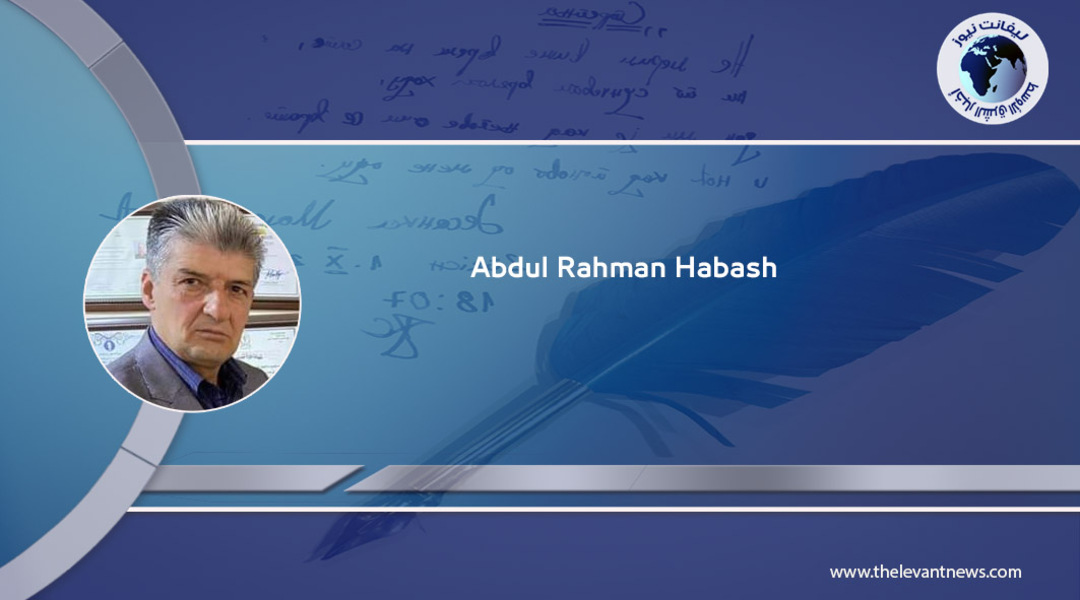-
No Changes in U.S. Policy in the Middle East After Donald Trump’s Victory

Donald Trump's victory in the U.S. elections signals the potential for significant impacts on American policy in the Middle East, which may range from strengthening traditional alliances to introducing new approaches to regional relations. As Trump takes office in the White House in 2025, substantial changes in his policy toward the region are expected.
The Russia-Ukraine crisis remains a central focus of U.S. policy, as tensions escalate between Russia and the West, particularly the United States and NATO. This conflict highlights how geopolitical interests intersect with human rights issues and regional security concerns. Russia seeks to enhance its influence in the region by supporting its traditional allies, such as the Assad regime in Syria, complicating the situation further.
On the other hand, Trump may reassess the U.S. military presence in Syria and Iraq, adopting a more assertive approach to counter Iranian influence. This could involve bolstering American military presence and continuing to impose strict sanctions on Iran, potentially heightening regional tensions and increasing disputes with Tehran. In this context, the United States is likely to strengthen its alliances with Gulf countries such as Saudi Arabia and the UAE, offering more military support and economic cooperation to enhance regional security.
Regarding the Kurdish issue in Syria, the Kurds, particularly the People's Protection Units (YPG), have played a pivotal role in the fight against ISIS. However, the Kurdish relationships with the United States could lead to tensions with Turkey, which regards the Syrian Democratic Forces (SDF) as a terrorist group due to its links with the Kurdistan Workers' Party (PKK). Turkey aims to diminish the Kurdish self-administration project in northeastern Syria, where the Kurdish dimensions intersect within the Syrian landscape, as the Kurds, especially the SDF, remain key players in the war against ISIS. However, U.S. support for the SDF in northeastern Syria contradicts Turkish interests and those of the Syrian government.
Complicating the scenario further is the fluctuating nature of Turkish-American relations, marked by cooperation and tension based on policies surrounding the Kurdish issue and the Syrian crisis in general. A potential visit to the Middle East by Trump could reshape these dynamics, with the new administration seeking to balance support for the Kurds and strengthening relations with Turkey. These dynamics raise questions about how Trump will handle U.S. Turkish relations amid Ankara's efforts to limit recognition of Kurdish self-administration in northeastern Syria.
Regarding the Palestinian issue, it is likely that Trump's pro-Israel policy will continue, as previously demonstrated by the relocation of the U.S. embassy to Jerusalem. This policy may lead to increased settlement activity in the West Bank and escalating tensions with Palestinians, in addition to supporting the Israeli campaign to eliminate armed resistance from Hamas and Hezbollah in southern Lebanon, suggesting a disregard for traditional peace efforts. Trump is expected to adopt a tougher stance against Hezbollah, potentially supporting political forces opposing it. However, it is essential to note that this approach could yield unpredictable outcomes, ranging from increased stability to chaos in the region, depending on the responses of these powers.
The situation becomes even more complex when considering the region's rising divisions, where political actions intersect with humanitarian and economic crises. Trump’s return to power may exacerbate these divisions, particularly in light of regional competition and sectarian tensions. These dynamics present a challenge to any strategy Trump seeks to implement in the Middle East, necessitating deep contemplation on how to manage the complex relationships between states and Western influence in the region.
Overall, Trump's second term is anticipated to be fraught with challenges and tensions in the Middle East, potentially witnessing significant changes in policies concerning Syria, Iraq, Lebanon, Palestine, and Iran. Much depends on the reactions of other countries and how regional and international actors respond to these new policies.
In summary, Trump's victory in the U.S. elections signifies a potential shift in American policy towards the Middle East and Asia, carrying both opportunities and challenges that require careful monitoring and a deep understanding of the multifaceted interactions in this sensitive region. Military conflict in the region could arise under President Donald Trump's administration with his Western allies.
Levant: Abdul Rahman Habash
You May Also Like
Popular Posts
Caricature
BENEFIT Sponsors BuildHer...
- April 23, 2025
BENEFIT, the Kingdom’s innovator and leading company in Fintech and electronic financial transactions service, has sponsored the BuildHer CityHack 2025 Hackathon, a two-day event spearheaded by the College of Engineering and Technology at the Royal University for Women (RUW).
Aimed at secondary school students, the event brought together a distinguished group of academic professionals and technology experts to mentor and inspire young participants.
More than 100 high school students from across the Kingdom of Bahrain took part in the hackathon, which featured an intensive programme of training workshops and hands-on sessions. These activities were tailored to enhance participants’ critical thinking, collaborative problem-solving, and team-building capabilities, while also encouraging the development of practical and sustainable solutions to contemporary challenges using modern technological tools.
BENEFIT’s Chief Executive Mr. Abdulwahed AlJanahi, commented: “Our support for this educational hackathon reflects our long-term strategic vision to nurture the talents of emerging national youth and empower the next generation of accomplished female leaders in technology. By fostering creativity and innovation, we aim to contribute meaningfully to Bahrain’s comprehensive development goals and align with the aspirations outlined in the Kingdom’s Vision 2030—an ambition in which BENEFIT plays a central role.”
Professor Riyadh Yousif Hamzah, President of the Royal University for Women, commented: “This initiative reflects our commitment to advancing women in STEM fields. We're cultivating a generation of creative, solution-driven female leaders who will drive national development. Our partnership with BENEFIT exemplifies the powerful synergy between academia and private sector in supporting educational innovation.”
Hanan Abdulla Hasan, Senior Manager, PR & Communication at BENEFIT, said: “We are honoured to collaborate with RUW in supporting this remarkable technology-focused event. It highlights our commitment to social responsibility, and our ongoing efforts to enhance the digital and innovation capabilities of young Bahraini women and foster their ability to harness technological tools in the service of a smarter, more sustainable future.”
For his part, Dr. Humam ElAgha, Acting Dean of the College of Engineering and Technology at the University, said: “BuildHer CityHack 2025 embodies our hands-on approach to education. By tackling real-world problems through creative thinking and sustainable solutions, we're preparing women to thrive in the knowledge economy – a cornerstone of the University's vision.”
opinion
Report
ads
Newsletter
Subscribe to our mailing list to get the new updates!





















